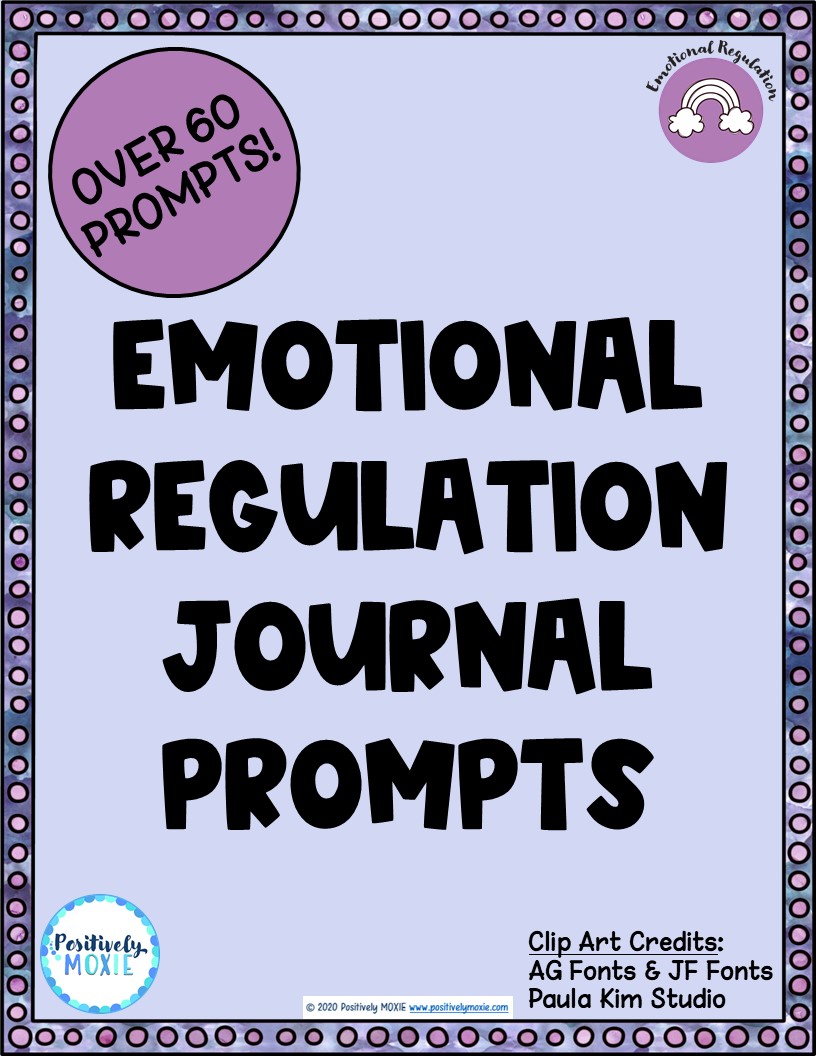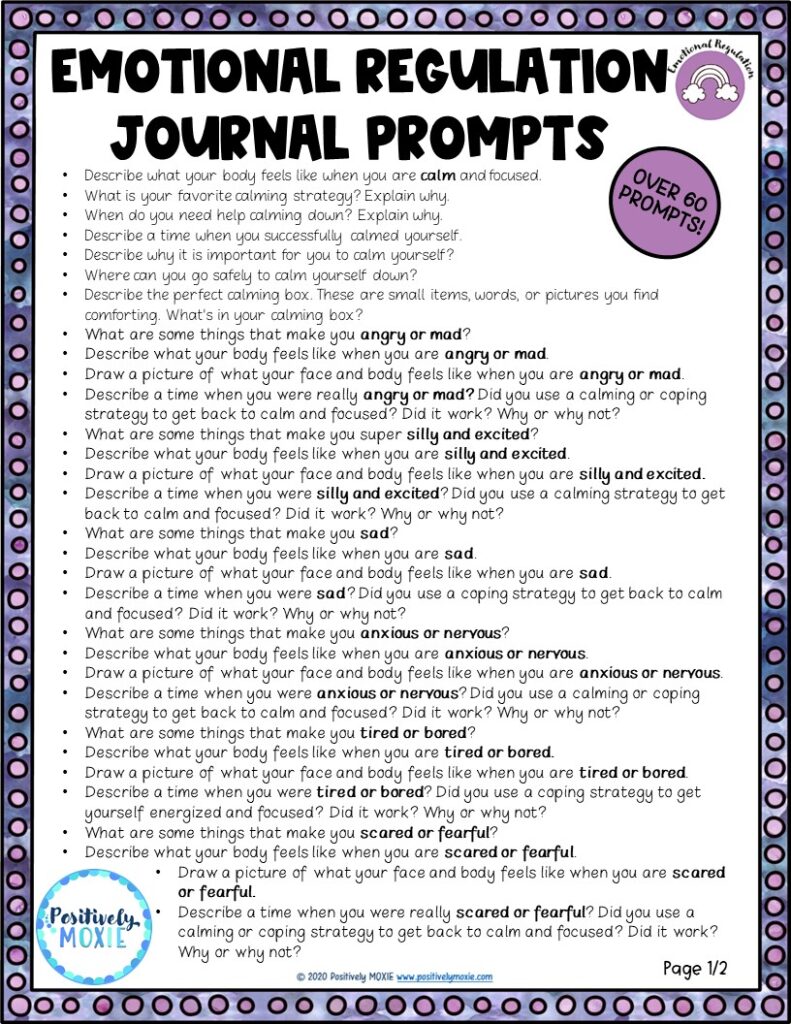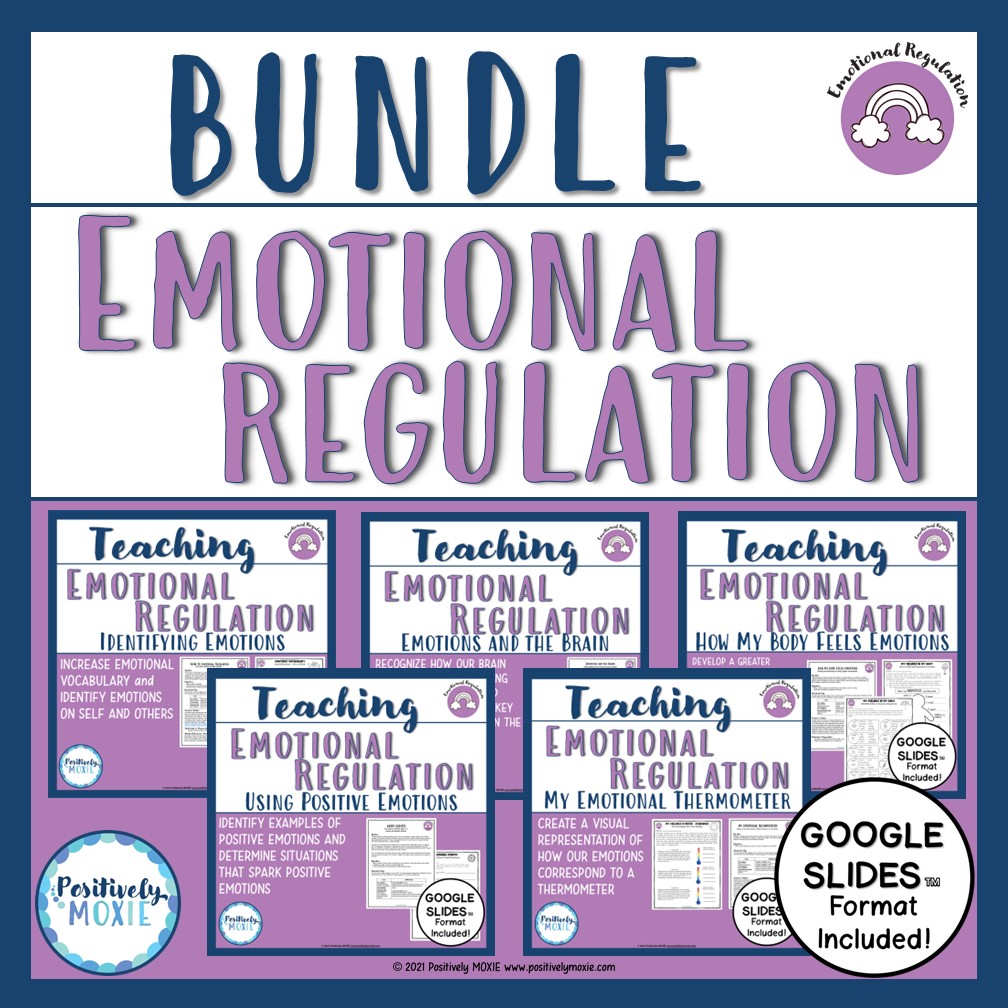7 Reasons Why Journal Writing Helps Us Process Our Emotions
Journal writing is a great strategy to foster emotional regulation skills in students. It helps improve feelings of well-being, increases communication skills, and develops greater interpersonal communication.

Journal writing is a simple yet powerful tool that can greatly benefit elementary school teachers and their students regarding emotional regulation. Encouraging young learners to journal regularly can help them develop essential emotional skills that will serve them well throughout their lives.
Journaling requires us to look inside ourselves. When we journal, we find greater meaning in our experiences. We learn to view things from a new perspective. We may even learn to see a “silver lining” in stressful or negative experiences.
Journal writing is a valuable tool that helps students reflect on, synthesize, and integrate what they understand and have learned about their emotional experiences. In this blog post, we’ll explore seven compelling reasons why journal writing is so helpful for emotional regulation in elementary school.
7 Reasons to Use Journal Writing
1. Problem-Solving and Coping Strategies
Journaling encourages students to think critically about their emotions and their challenges. It prompts them to brainstorm solutions and develop coping strategies for difficult situations. This proactive approach empowers students to manage their emotions in real-life scenarios better.
2. Emotional Regulation Vocabulary
Journaling can expand students’ emotional vocabulary by encouraging them to label and describe their feelings. Children who can name their emotions accurately are better equipped to manage them effectively, helping prevent emotional outbursts.
3. Self-Regulation and Awareness
Journal writing prompts students to reflect on their emotions, thoughts, and experiences. This process helps them better understand their feelings and what triggers them. This increased self-awareness is a crucial step toward emotional regulation.
4. Emotion Expression
Writing in a journal gives students a safe and private space to express their emotions without judgment. This allows them to release pent-up feelings and reduce emotional stress. Students can articulate their emotions and experiences through journaling, making them more manageable.
5. Stress Reduction
Regular journaling has been shown to reduce stress levels. When students put their thoughts and emotions on paper, it can help them offload stress and anxiety, leading to a sense of relief and emotional balance.
6. Record Emotional Progress
Journals serve as a record of emotional growth and progress over time. By reviewing past entries, students can see how they’ve evolved in their ability to manage emotions, which can be incredibly empowering and motivating.
7. Gratitude and Positive Affirmations
Journal writing isn’t just about addressing negative emotions. It can also be a platform for practicing gratitude and positive affirmations. Encouraging students to write about things they’re thankful for and their accomplishments fosters a more positive mindset and emotional resilience.

Journal writing is a very productive emotional regulation activity for our students as they learn to navigate the ups and downs of their emotions. Through reflection, our students answer targeted questions and give insight into their emotions and emotional regulation skills. As teachers, we can assess the depth of understanding our students have about their emotional regulation and overall well-being.
When we develop emotional regulation, we learn to become more emotionally “fit” – our capacity to create a balance of naming, interpreting, and managing our emotions. This positively impacts our overall well-being. Encourage your students to journal write today!
Journal writing is a valuable tool for elementary school teachers looking to support emotional regulation in their students. By incorporating journaling into the curriculum, educators can help children develop self-awareness, emotional expression, problem-solving skills, and much more. These seven reasons demonstrate that journaling is a simple yet effective means to empower young learners with the emotional skills they need for a happier and more balanced life.
Looking for more? Our Emotional Regulation lessons teach students to better understand emotional regulation through the principles of positive psychology and how this concept supports well-being and resilience skills. It contains five lessons, lasting from 30 to 45 minutes, that you may choose to give all in one week or spread out. Each lesson includes detailed teacher instructions with handouts and activities. There are also supplemental activities that you may deliver concurrently or use to reinforce the lessons later.



